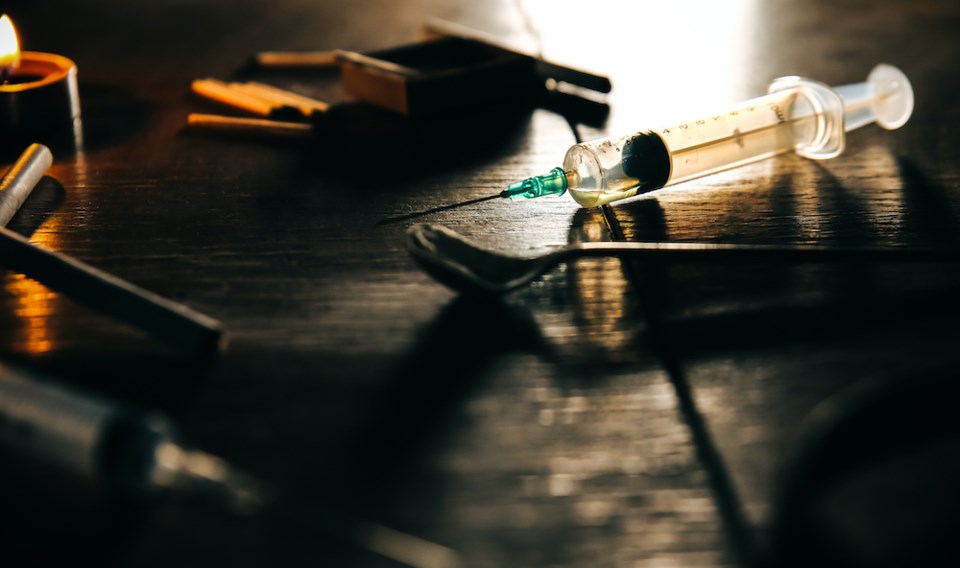It’s 2022, but when it comes to drug policy and overdose, it might as well still be 2016 given how little has been done to address overdoses. For that matter, it might as well be 1971, when the war on drugs was first declared by U.S. President Richard Nixon, for all that’s changed in the last half-century
However, the year is still young and, since our governments seem intent on changing nothing, I thought I’d help them out with some New Year’s resolutions to end the overdose crisis.
For the federal government
You wouldn’t know it from the Prime Minister’s mandate letter to new Minister of Mental Health and Addictions Carolyn Bennett, but Canada is, in fact, in the midst of a national overdose crisis. Nearly 20 Canadians die every day from toxic drug poisoning, but no mention of that in the PM’s letter. Opposite to what they want you to believe, the federal government can take action to help end overdoses.
Resolve to change policy to allow for a domestic supply of heroin. No more leaving the drug supply to gangs who are driven to maximize profits at the expense of lives. Instead, let’s support the domestic production of pharmaceutical grade heroin so people can readily access a safer supply of drugs while undercutting organized crime.
Resolve to end the criminalization of people who use drugs. The war on drugs is a misnomer – in reality it’s a war on people who use drugs. And it’s destroyed the lives of Indigenous people and people of colour and their communities. The federal government can, right now, support decriminalization by approving the applications from Vancouver, Toronto, and across B.C. It can and should go further, by ending the criminalization of people who use drugs and, importantly, expunging the criminal records of those who’ve been charged or are currently incarcerated.
Resolve to fund supervised consumption sites. It’s been nearly two decades since Vancouver’s Insite opened as the first sanctioned supervised consumption site in Canada. It’s been another decade since the Supreme Court of Canada unanimously ruled that it remain open. Yet there are only a few dozen in the entire country, despite a need for one in every single community. The reason? Stigma and discrimination towards drug users that shows itself in other levels of government’s policies. The federal government should guarantee funding for these life-saving facilities and take it out of the hands of provincial and municipal governments that are obstructionists.
Resolve to invest in housing and ending poverty. Poverty, homelessness, and the intersections with trauma are drivers of substance use. The federal government should invest in preventing substance use by ending homelessness and poverty.
For the B.C. government
We can't have another year of doing the bare minimum or only what’s politically acceptable, not with people overdosing and dying across the province at rates we’ve never seen before.
Resolve to follow the science. For the most part, the province has followed the advice of the provincial health officer when it comes to COVID-19. From vaccines to lockdowns to mask mandates, public health has been at the centre of our provincial response. Overdose has been different. Nearly two years ago, Dr. Bonnie Henry released a report calling for the decriminalization of people who use drugs, based on a large body of evidence pointing to the harms of criminalization. The report provided a blueprint for how to make this possible in British Columbia. It was met with resounding silence. It’s time to listen – and follow – the science when it comes to substance use, no matter how politically inconvenient it might be.
Resolve to expand safer supply. If you listen to the interviews, you might believe that a safer supply of drugs – that is, alternatives to the illicit drug supply – is readily accessible across B.C. It’s not. Doctors are gatekeepers, even though they don’t want to be. Safer supply needs to be taken out of the medical system and scaled up to be offered through overdose prevention sites in every community in B.C. And the drugs that are available have to be the drugs that people need and want, not a watered-down alternative.
Resolve to practice REAL decriminalization. This one is for the Vancouver Police Department, but also any other police department that claims to practice decriminalization. Real decriminalization doesn’t mean continuing to harass and arrest people who use drugs for other minor offences, confiscating their drugs without charges, or practicing daily street sweeps in the Downtown Eastside. Real decriminalization is standing down and staying away. Anything else is just a lie.
It’s not just our governments or police who have a role in ending overdose though. Each in every one of us plays a part. You never know what small act can be life-changing for someone who faces stigma every day.
So for all the readers, my New Year’s resolution for you is to always give a person an opportunity to change – they will, given the chance.
Guy Felicella is a Peer Clinical Advisor at the BC Centre on Substance Use. Follow him on Twitter at @guyfelicella.




